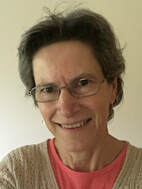
Hope for a Conservation Legacy
December 2018
Pam Dryer, Lincoln Township
Northern Wisconsin has abundant natural resources and self-reliant people. We enjoy and are known for our rich forests, clear streams, productive farms and Lake Superior.
Over 100 years ago, however, the land was cleared, the waters turned brown and wild fires threatened our ancestors’ lives and livelihoods.
How did we get from then to now? I credit the legacies of conservation giants who were courageous enough to give us means to help ourselves. Who are some of these giants?
Read full article
December 2018
Pam Dryer, Lincoln Township
Northern Wisconsin has abundant natural resources and self-reliant people. We enjoy and are known for our rich forests, clear streams, productive farms and Lake Superior.
Over 100 years ago, however, the land was cleared, the waters turned brown and wild fires threatened our ancestors’ lives and livelihoods.
How did we get from then to now? I credit the legacies of conservation giants who were courageous enough to give us means to help ourselves. Who are some of these giants?
Read full article
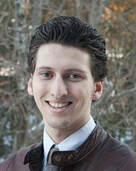
Carbon Emissions: A Moral Imperative
January 2019
Alec Drachenberg, Ashland
On July 4, 1776 thirteen united states held, by unanimous declaration, that God created man with certain unalienable rights, among them being the right to life. This is a fundamental principle that has remained a part of the United States of America since its inception. This principle can be described as the sanctity of human life. Yet, I believe that environmental degradation is often overlooked as a threat to human life.
Read full article
January 2019
Alec Drachenberg, Ashland
On July 4, 1776 thirteen united states held, by unanimous declaration, that God created man with certain unalienable rights, among them being the right to life. This is a fundamental principle that has remained a part of the United States of America since its inception. This principle can be described as the sanctity of human life. Yet, I believe that environmental degradation is often overlooked as a threat to human life.
Read full article
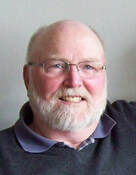
Climate Change: A Local Fruit Farmer’s Perspective
February 2019
Rick Dale, Bayfield
As a farmer, I can't help "keeping an eye on the sky" for what the weather will bring. My business, my way of life, my very survival as a farmer, and the future for my children depends on the weather. Whenever the present experience is very far outside of expected norms for very long, for better or for worse, I become nervous. Agriculture depends on the regular cycles, the rhythms, the steady heart-beat of nature for its outcomes.
Read full article
February 2019
Rick Dale, Bayfield
As a farmer, I can't help "keeping an eye on the sky" for what the weather will bring. My business, my way of life, my very survival as a farmer, and the future for my children depends on the weather. Whenever the present experience is very far outside of expected norms for very long, for better or for worse, I become nervous. Agriculture depends on the regular cycles, the rhythms, the steady heart-beat of nature for its outcomes.
Read full article
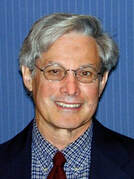
Addressing Climate Change: An Economic Win-Win
November 2018
Robert Schlack, Bayfield
Alarms keep sounding. Extreme weather events have become our new normal. The human and economic costs of increased wildfires, flooding, droughts, and migration keep rising. Last month, the UN’s international panel of climate scientists reported that due to rising levels of carbon emissions caused by human activities, temperatures will rise more quickly and have more severe economic consequences than earlier thought.
Read full article
November 2018
Robert Schlack, Bayfield
Alarms keep sounding. Extreme weather events have become our new normal. The human and economic costs of increased wildfires, flooding, droughts, and migration keep rising. Last month, the UN’s international panel of climate scientists reported that due to rising levels of carbon emissions caused by human activities, temperatures will rise more quickly and have more severe economic consequences than earlier thought.
Read full article
Climate Talk Archives

Environmental Patriotism
Dylan Couch
June 2018
Whenever I hear the word patriotism, several images or words spring to mind, including associations with war, the American flag, and nationalism. State leaders ignite patriotism in their citizens in order to mobilize them and gain loyalty on specific policies. And as a country roused by patriotism we have accomplished seemingly impossible feats over the course of American history, from gaining independence to landing on the moon. Using this same call to action, I argue that patriotism might be the lever this country needs to overcome issues posed by an increasingly threatened environment.
Read full article
Dylan Couch
June 2018
Whenever I hear the word patriotism, several images or words spring to mind, including associations with war, the American flag, and nationalism. State leaders ignite patriotism in their citizens in order to mobilize them and gain loyalty on specific policies. And as a country roused by patriotism we have accomplished seemingly impossible feats over the course of American history, from gaining independence to landing on the moon. Using this same call to action, I argue that patriotism might be the lever this country needs to overcome issues posed by an increasingly threatened environment.
Read full article

Our Climate - A Call to Action
EmmaMarie Hammond
May 2018
My recent attendance at the Wisconsin Citizens' Climate Lobby Convention made a point very clear: There is evidence of climate change. It is not simply a matter of believing or not believing. At the end of the day, issues revolving around climate become issues of politics and economics. And then the web continues with issues in social and environmental justice.
Read full article
EmmaMarie Hammond
May 2018
My recent attendance at the Wisconsin Citizens' Climate Lobby Convention made a point very clear: There is evidence of climate change. It is not simply a matter of believing or not believing. At the end of the day, issues revolving around climate become issues of politics and economics. And then the web continues with issues in social and environmental justice.
Read full article
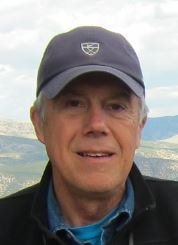
Silencing the Heralds of Spring
Neil Howk
April 2018
Though it may not be obvious by looking at the thermometer, the calendar tells us that spring is here. The days are getting longer and I am once again waking up to the sounds of birds singing outside my window. Over the next month or so we will be treated to the annual migration of birds moving through the area as they return to their summer nesting grounds. As a life-long birdwatcher, this is something I look forward to every year.
Read full article
Neil Howk
April 2018
Though it may not be obvious by looking at the thermometer, the calendar tells us that spring is here. The days are getting longer and I am once again waking up to the sounds of birds singing outside my window. Over the next month or so we will be treated to the annual migration of birds moving through the area as they return to their summer nesting grounds. As a life-long birdwatcher, this is something I look forward to every year.
Read full article
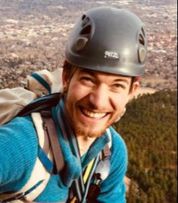
Driving on the Sun
Ryan Raschke
March 2018
This was going to be an article about trains. During a long drive down to Milwaukee over the holidays, weaving about seasonal traffic on winter roads, I couldn’t help but think how that time could be better utilized doing something besides driving. Thinking of how efficient the world of trains had been and how the world of automated vehicles will be, I couldn’t shake the idea that we have a transportation problem. Although we’ve solved the accessibility issue, our technology sucks!
Read full article
Ryan Raschke
March 2018
This was going to be an article about trains. During a long drive down to Milwaukee over the holidays, weaving about seasonal traffic on winter roads, I couldn’t help but think how that time could be better utilized doing something besides driving. Thinking of how efficient the world of trains had been and how the world of automated vehicles will be, I couldn’t shake the idea that we have a transportation problem. Although we’ve solved the accessibility issue, our technology sucks!
Read full article
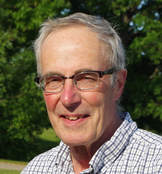
Drawdown: Sorting through the tools we'll need to reverse global warming
Bill Bland
February 2018
Global warming is a big, hard problem for our species. But what do we do when faced with a tough problem? When we are at our most effective (which isn’t everyday) we break it down into some smaller questions: what is going on? how did we get here? what will it mean if we do nothing? what are useful actions?
Read full article
Bill Bland
February 2018
Global warming is a big, hard problem for our species. But what do we do when faced with a tough problem? When we are at our most effective (which isn’t everyday) we break it down into some smaller questions: what is going on? how did we get here? what will it mean if we do nothing? what are useful actions?
Read full article

Climate Disasters Demand Bipartisan Action
Adam Zais
January 2018
Winter in the Chequamegon Bay is a beautiful sight. As I write these words, the frozen water is being slowly populated by a collection of ice houses. I’m fortunate to call the bay home for this winter - and hopefully many more. It’s a peaceful, blessed quiet that is a long ways from ugly political gossip and sixteen lane gridlock - far away from Houston, Puerto Rico, the Columbia River Gorge, Northern California, and now Los Angeles, which is grappling with some decidedly un-quiet times.
Read full article
Adam Zais
January 2018
Winter in the Chequamegon Bay is a beautiful sight. As I write these words, the frozen water is being slowly populated by a collection of ice houses. I’m fortunate to call the bay home for this winter - and hopefully many more. It’s a peaceful, blessed quiet that is a long ways from ugly political gossip and sixteen lane gridlock - far away from Houston, Puerto Rico, the Columbia River Gorge, Northern California, and now Los Angeles, which is grappling with some decidedly un-quiet times.
Read full article
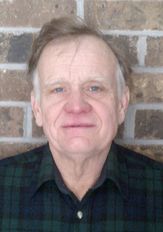
The Elephant that is Stalking Us
Phill Freeman
November 2017
The Citizens’ Climate Lobby is working to build political support for action to decrease U.S. greenhouse gas emissions. The increasing atmospheric concentration of these gases, mainly of carbon dioxide and methane, are causing Earth’s climate to warm and change. The ultimate cause of not only climate change but of nearly all of our environmental and some of our social problems, however, is an addiction problem. No, I am not about to blame global warming on meth or opioids – I am talking about our addiction to growth.
Read full article
Phill Freeman
November 2017
The Citizens’ Climate Lobby is working to build political support for action to decrease U.S. greenhouse gas emissions. The increasing atmospheric concentration of these gases, mainly of carbon dioxide and methane, are causing Earth’s climate to warm and change. The ultimate cause of not only climate change but of nearly all of our environmental and some of our social problems, however, is an addiction problem. No, I am not about to blame global warming on meth or opioids – I am talking about our addiction to growth.
Read full article

Let's Not Overlook New Source of Living Wage
Linda Jorgenson
November 2017
Like most of rural America, the last three decades have not been particularly prosperous ones for Ashland and Bayfield Counties. In 2017 both counties still struggle to replace “living wage” jobs like those we lost in the paper and wood products industries in the 1990s. With some exceptions, retail, human services, health care, agriculture and the tourism hospitality sectors have not been able to compensate at that $20-30/hour manufacturing level. The median wage in Ashland County is $19/hour and in Bayfield County it is $22/hour, meaning half the families earn less than this amount and half earn more.
Read full article
Linda Jorgenson
November 2017
Like most of rural America, the last three decades have not been particularly prosperous ones for Ashland and Bayfield Counties. In 2017 both counties still struggle to replace “living wage” jobs like those we lost in the paper and wood products industries in the 1990s. With some exceptions, retail, human services, health care, agriculture and the tourism hospitality sectors have not been able to compensate at that $20-30/hour manufacturing level. The median wage in Ashland County is $19/hour and in Bayfield County it is $22/hour, meaning half the families earn less than this amount and half earn more.
Read full article
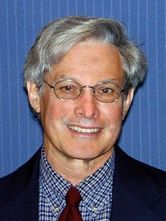
Climate Policies: Market Signals, Clubs, and Nudges
Robert Schlack
October 2017
Earlier this month Richard Thaler, an economist who has who has long questioned an underlying assumption of his discipline, was awarded a Nobel Prize. The assumption is that of “economic rationality,” the idea that in making our choices in the marketplace, we carefully weigh perceived gains and losses and act to maximize our net benefits. While Thaler does not deny the applicability of this traditional model over a wide range of behavior, an over-emphasis on monetary factors alone, and specifically to the exclusion of “psychological factors,” leaves unexplained certain observed behaviors. With this award, behavioral economics, as it is known, has been welcomed into the mainstream of economic science.
Read full article
Robert Schlack
October 2017
Earlier this month Richard Thaler, an economist who has who has long questioned an underlying assumption of his discipline, was awarded a Nobel Prize. The assumption is that of “economic rationality,” the idea that in making our choices in the marketplace, we carefully weigh perceived gains and losses and act to maximize our net benefits. While Thaler does not deny the applicability of this traditional model over a wide range of behavior, an over-emphasis on monetary factors alone, and specifically to the exclusion of “psychological factors,” leaves unexplained certain observed behaviors. With this award, behavioral economics, as it is known, has been welcomed into the mainstream of economic science.
Read full article
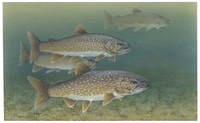
Rising Lake Superior water temperatures threaten lake trout - and our future
Susan Hedman
September 2017
The Lake Trout season closed early this year in the Apostle Islands region of Lake Superior. The abrupt end to our recreational Lake Trout season was a reminder that restoring a sustainable fish population is an ongoing process – a process that has successfully allowed Lake Trout to recover, after being almost eliminated from Lake Superior during the 1950s and 1960s. The next step in this ongoing process is starting right now, as the Wisconsin Department of Natural Resources begins to prepare a new Lake Superior Fisheries Management Plan.
Read full article
Susan Hedman
September 2017
The Lake Trout season closed early this year in the Apostle Islands region of Lake Superior. The abrupt end to our recreational Lake Trout season was a reminder that restoring a sustainable fish population is an ongoing process – a process that has successfully allowed Lake Trout to recover, after being almost eliminated from Lake Superior during the 1950s and 1960s. The next step in this ongoing process is starting right now, as the Wisconsin Department of Natural Resources begins to prepare a new Lake Superior Fisheries Management Plan.
Read full article
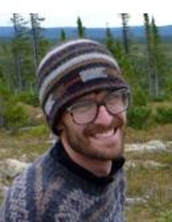
Geologic perspectives on climate change
David Ullman
August 2017
On those really hot days in August, I often like to ride my bike down to Maslowski Beach in Ashland to let my mind drift into geologic time. I’ll wade into the cool water and stare out across Chequamegon Bay, imagining a not-so-distant past, where a massive wall of ice would have at one point stood on the horizon, occupying much of Lake Superior.
Read full article
David Ullman
August 2017
On those really hot days in August, I often like to ride my bike down to Maslowski Beach in Ashland to let my mind drift into geologic time. I’ll wade into the cool water and stare out across Chequamegon Bay, imagining a not-so-distant past, where a massive wall of ice would have at one point stood on the horizon, occupying much of Lake Superior.
Read full article
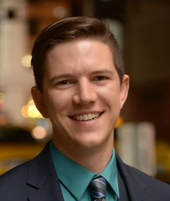
Climate change at home: The case for localized adaptation
Forrest Howk
August 2017
“We’re not climate refugees, we will stay here ‘till we die!”
The phrase isn’t a common title for an academic paper but a presentation by this name won the Award for Best Paper at the World Symposium on Climate Change Impacts and Adaptation Strategies in Coastal Communities hosted in Western Samoa, in July. The symposium’s goal was to discuss, document, and disseminate best practices for the complicated work of adapting to climate change on low-lying, small island countries. In attendance were more than 100 climate adaptation professionals, politicians, and academics from more than a dozen island nations across the western Pacific Ocean.
Read full article
Forrest Howk
August 2017
“We’re not climate refugees, we will stay here ‘till we die!”
The phrase isn’t a common title for an academic paper but a presentation by this name won the Award for Best Paper at the World Symposium on Climate Change Impacts and Adaptation Strategies in Coastal Communities hosted in Western Samoa, in July. The symposium’s goal was to discuss, document, and disseminate best practices for the complicated work of adapting to climate change on low-lying, small island countries. In attendance were more than 100 climate adaptation professionals, politicians, and academics from more than a dozen island nations across the western Pacific Ocean.
Read full article
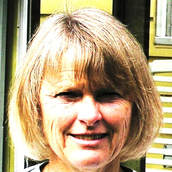
Carbon fee and dividend is the preferred solution
Gail Syverud
July 2017
Citizens’ Climate Lobby (CCL) held its tenth annual conference on June 11-13 in Washington D.C. This year, 1354 people attended the conference and 950 people participated in lobbying. CCL members went to Capitol Hill and met with a total of 503 Members of Congress or staff. The goal of the meetings was to promote Congressional action on climate change. Discussion focused on Carbon Fee and Dividend and asking House of Representatives members to join the Climate Solutions Caucus.
Read full article
Gail Syverud
July 2017
Citizens’ Climate Lobby (CCL) held its tenth annual conference on June 11-13 in Washington D.C. This year, 1354 people attended the conference and 950 people participated in lobbying. CCL members went to Capitol Hill and met with a total of 503 Members of Congress or staff. The goal of the meetings was to promote Congressional action on climate change. Discussion focused on Carbon Fee and Dividend and asking House of Representatives members to join the Climate Solutions Caucus.
Read full article
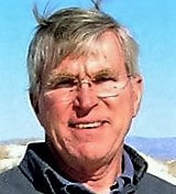
China's carbon trading market
John Lindell
July 2017
The June 23, 2017 New York Times ran an article by Christopher Buckley entitled “China’s Leader Pushes Ahead with Big Gamble on a Carbon Trading Market.” Much of the following is a recap of that article.
Read full article
John Lindell
July 2017
The June 23, 2017 New York Times ran an article by Christopher Buckley entitled “China’s Leader Pushes Ahead with Big Gamble on a Carbon Trading Market.” Much of the following is a recap of that article.
Read full article
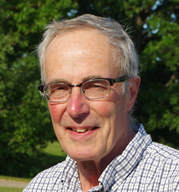
Extreme rainfall and climate change
Bill Bland
June 2017
“PAN-PAN, PAN-PAN, PAN-PAN” Wow! I’d just finished wiring up the new radio on my boat and the first transmission it received was a “pay attention now” warning from the US Coast Guard. It was early morning, July 12, 2016, and the message told of dozens of boats drifting in Lake Superior near Saxon Harbor. I thought that maybe a fleet of dinghies stored too close to the shore had been blown out into the lake by last night’s storm. In the hours and days to come, however, we all learned of the tremendous damage and loss of life the storm had wrought.
Read full article
Bill Bland
June 2017
“PAN-PAN, PAN-PAN, PAN-PAN” Wow! I’d just finished wiring up the new radio on my boat and the first transmission it received was a “pay attention now” warning from the US Coast Guard. It was early morning, July 12, 2016, and the message told of dozens of boats drifting in Lake Superior near Saxon Harbor. I thought that maybe a fleet of dinghies stored too close to the shore had been blown out into the lake by last night’s storm. In the hours and days to come, however, we all learned of the tremendous damage and loss of life the storm had wrought.
Read full article
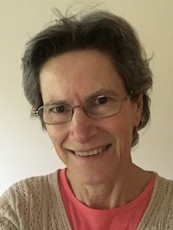
Climate March - People, Passion and Prayers
Pam Dryer
May 2017
Passion, justice, peace, fear, anger, hope, guilt, resistance, love. These were all expressed by the people who attended the 2017 People’s Climate March in Washington DC on April 29th. Over 200,000 people, including me, marched from our Capitol Building down Pennsylvania Avenue to and around our White House last month. It was President Trump’s 100th day in office so we sat in silent protest for 100 seconds.
Read full article
Pam Dryer
May 2017
Passion, justice, peace, fear, anger, hope, guilt, resistance, love. These were all expressed by the people who attended the 2017 People’s Climate March in Washington DC on April 29th. Over 200,000 people, including me, marched from our Capitol Building down Pennsylvania Avenue to and around our White House last month. It was President Trump’s 100th day in office so we sat in silent protest for 100 seconds.
Read full article
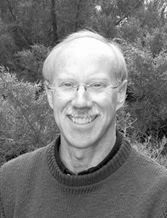
America at its best when she shows leadership
Mark Peterson
April 2017
When it comes to tackling climate change, bold steps are needed among many nations. America, usually the country providing innovation and a “can do” spirit, now seems to be turning back the clock on several fronts.
Read full article
Mark Peterson
April 2017
When it comes to tackling climate change, bold steps are needed among many nations. America, usually the country providing innovation and a “can do” spirit, now seems to be turning back the clock on several fronts.
Read full article
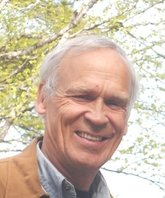
Coming together on climate change
Bill Bussey
March 2017
The issue of climate change has certainly been a divisive one. While most folks probably agree that the climate is changing, there are strongly-held differing opinions on the extent to which humans contribute to it; what its impacts will be; and whether anything can be done about it. Though a great many climate scientists have concluded that it poses very serious risks, there are others who have concluded otherwise, and no one can say for certain what the outcome will be.
Read full article
Bill Bussey
March 2017
The issue of climate change has certainly been a divisive one. While most folks probably agree that the climate is changing, there are strongly-held differing opinions on the extent to which humans contribute to it; what its impacts will be; and whether anything can be done about it. Though a great many climate scientists have concluded that it poses very serious risks, there are others who have concluded otherwise, and no one can say for certain what the outcome will be.
Read full article
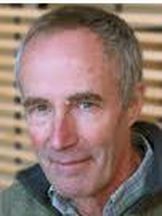
Climate and the Madeline Island ice road
Bill Bland
February 2017
They are visible from most Bayfield streets, the line of retired Christmas trees marking the path of the ice road to Madeline Island. But this year we have watched them slip into the depths as the ice cover melted before it was ever adequate to support a car. This is good news if you work for the ferry (I suppose) and not so good if you commute from Madeline Island or if (like me) you look forward to the adventure of driving across. If the ferry is able to run all winter it will be the fourth time in 150 years of records, with three of these in the past six years.
Read full article
Bill Bland
February 2017
They are visible from most Bayfield streets, the line of retired Christmas trees marking the path of the ice road to Madeline Island. But this year we have watched them slip into the depths as the ice cover melted before it was ever adequate to support a car. This is good news if you work for the ferry (I suppose) and not so good if you commute from Madeline Island or if (like me) you look forward to the adventure of driving across. If the ferry is able to run all winter it will be the fourth time in 150 years of records, with three of these in the past six years.
Read full article
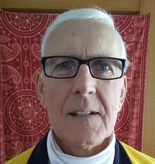
Climate Talk
Larry Jorstad
January 2017
“We the People…” We are blessed people, who live on and around Lake Superior, blessed people with the extraordinary beauty of the area, but our area is changing, our world is changing, our climate is changing.
Read full article
Larry Jorstad
January 2017
“We the People…” We are blessed people, who live on and around Lake Superior, blessed people with the extraordinary beauty of the area, but our area is changing, our world is changing, our climate is changing.
Read full article

Let's bind together
Mark Johnson
December 2016
One of my spiritual mentors was fond of saying that a root of the word, “religion" means “to bind together.”
Looking at our world and the current impact of religion, one would conclude that “religion” is doing anything but that. In our own country, we see not binding but dissension over religion. Even in the Christian Church, we have bitter divisions. I have relatives that no longer talk to me because we differ over some of the social issues of the day.
Read full article
Mark Johnson
December 2016
One of my spiritual mentors was fond of saying that a root of the word, “religion" means “to bind together.”
Looking at our world and the current impact of religion, one would conclude that “religion” is doing anything but that. In our own country, we see not binding but dissension over religion. Even in the Christian Church, we have bitter divisions. I have relatives that no longer talk to me because we differ over some of the social issues of the day.
Read full article
Three Northland College Students Weigh in on the National Election: What Does This Mean for Climate Change?
Emily Donaldson, Michaela Fisher, Kinsey Neal
November 2016
When did science become so politicized? Ninety seven percent of our scientists agree that climate change is real, caused by humans, and is a threat to our nation as well as our world. Yet in our government, the words climate change seem to be grounds for verbal war.
Read full article
Emily Donaldson, Michaela Fisher, Kinsey Neal
November 2016
When did science become so politicized? Ninety seven percent of our scientists agree that climate change is real, caused by humans, and is a threat to our nation as well as our world. Yet in our government, the words climate change seem to be grounds for verbal war.
Read full article
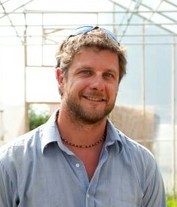
Farming, floods, and the new normal
Todd Rothe
October 2016
This summer was a wet and wild ride on the weather roller coaster. The flood of 2016 was one for the record books and is sure to be harkened back on for decades to come. It was not only a great test of our community resolve and collaboration, but also a conditioning exercise to prepare for the next cycle of “weird weather” in this age of climate change.
Read full article
Todd Rothe
October 2016
This summer was a wet and wild ride on the weather roller coaster. The flood of 2016 was one for the record books and is sure to be harkened back on for decades to come. It was not only a great test of our community resolve and collaboration, but also a conditioning exercise to prepare for the next cycle of “weird weather” in this age of climate change.
Read full article
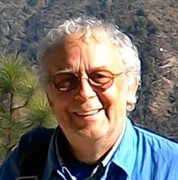
Climate change preparedness in the Up-North
George Einar Bussey
September 2016
Climate Change, it’s personal. Chiggers? Makes me itch just to think about it. Will those nasty little lawn varmints come north with climate change? I’m just not prepared for that!
Read full article
George Einar Bussey
September 2016
Climate Change, it’s personal. Chiggers? Makes me itch just to think about it. Will those nasty little lawn varmints come north with climate change? I’m just not prepared for that!
Read full article
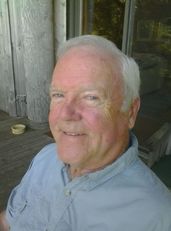
Could climate change cause a real estate boom to the Great Lakes?
Larry Bean
August 2016
It seems that often articles on climate change focus on the physical changes in the environment such as temperature increase, ice melt, sea level rise, increased storm intensity and others. A fewer number speak to the changes that may occur with plant and animal life distributions and survival, and especially the changes that are happening to human settlement patterns.
Read full article
Larry Bean
August 2016
It seems that often articles on climate change focus on the physical changes in the environment such as temperature increase, ice melt, sea level rise, increased storm intensity and others. A fewer number speak to the changes that may occur with plant and animal life distributions and survival, and especially the changes that are happening to human settlement patterns.
Read full article

Two millenials go to Washington
Anya Janssen & Michaela Fisher
July 2016
On behalf of and fully supported by the Chequamegon Citizens’ Climate Lobby (CCL) Chapter, two of us “Northlanders”— Anya a recent Northland College graduate and Michaela a rising senior—traveled to Washington last month to build political will and lobby members of Congress. CCL volunteers presented personalized views about legislation needed to mitigate the global climate crisis and hear from members of Congress. Each of us present our perspectives separately below.
Read full article
Anya Janssen & Michaela Fisher
July 2016
On behalf of and fully supported by the Chequamegon Citizens’ Climate Lobby (CCL) Chapter, two of us “Northlanders”— Anya a recent Northland College graduate and Michaela a rising senior—traveled to Washington last month to build political will and lobby members of Congress. CCL volunteers presented personalized views about legislation needed to mitigate the global climate crisis and hear from members of Congress. Each of us present our perspectives separately below.
Read full article
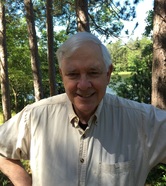
After Paris, what? Nine experts' top priorities for a low-carbon future
Kent Shifferd
June 2016
This spring an important and insightful article appeared the Catalyst, the magazine from the Union of Concerned Scientists, written by nine highly respected climate change experts. They offer their best thinking of what specific actions should now be taken after representatives of 195 countries agreed last December in Paris on a framework for reducing global warming.
Read full article
Kent Shifferd
June 2016
This spring an important and insightful article appeared the Catalyst, the magazine from the Union of Concerned Scientists, written by nine highly respected climate change experts. They offer their best thinking of what specific actions should now be taken after representatives of 195 countries agreed last December in Paris on a framework for reducing global warming.
Read full article
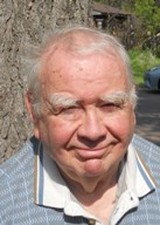
A father-son dialog in 2036
David Emch, Washburn
May 2016
Dateline: Ashland, Wisconsin May 28, 2036
After great effort over the last 20 years, since 2016, the nations of the world have reduced the annual carbon dioxide emissions to the point that atmospheric carbon dioxide is now reduced to 350 parts per million. But not before considerable damage has been done to the world's climate and ecosystems.
Read full article
David Emch, Washburn
May 2016
Dateline: Ashland, Wisconsin May 28, 2036
After great effort over the last 20 years, since 2016, the nations of the world have reduced the annual carbon dioxide emissions to the point that atmospheric carbon dioxide is now reduced to 350 parts per million. But not before considerable damage has been done to the world's climate and ecosystems.
Read full article
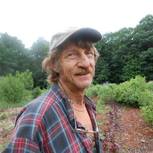
The growing pains of agriculture and climate change
Tom Galazen, Bayfield
April 2016
Our climate, and most of the life dependent upon it, is in deep trouble. Atmospheric concentrations of carbon dioxide hit an all-time record high of 404 parts per million in early March. Every state in the Union had winter temperatures nearly 2 degrees Fahrenheit above normal, with Alaska surging to 10.6 degrees beyond average.
Read full article
Tom Galazen, Bayfield
April 2016
Our climate, and most of the life dependent upon it, is in deep trouble. Atmospheric concentrations of carbon dioxide hit an all-time record high of 404 parts per million in early March. Every state in the Union had winter temperatures nearly 2 degrees Fahrenheit above normal, with Alaska surging to 10.6 degrees beyond average.
Read full article
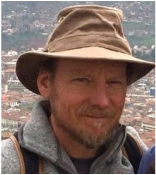
Making sense of climate change news
Bill Bailey, Bayfield
March 2016
Did you read the Ashland Daily Press last December 26th? Me neither, I think Christmas got in the way. I found out later that Bill Bussey had written a great “Climate Talk” that was printed that day. In case you missed it, he summed up all the great things that are happening to reduce greenhouse gas emissions in hopes of slowing climate change...
Read full article
Bill Bailey, Bayfield
March 2016
Did you read the Ashland Daily Press last December 26th? Me neither, I think Christmas got in the way. I found out later that Bill Bussey had written a great “Climate Talk” that was printed that day. In case you missed it, he summed up all the great things that are happening to reduce greenhouse gas emissions in hopes of slowing climate change...
Read full article

There is no safe ice
Roger Aiken, Bayfield
February 2016
I enjoyed Rick Olivio’s article last month on the John Esposito book, ‘Blood on the Ice.” The book has many cautionary tales about the risks and dangers of going onto the ice. The good old days were full of danger-filled adventures driven by the hunt for the big prize or maybe just dinner. Healthy respect for the power of nature was learned at great cost by those who went out unprepared or were just unlucky.
Read full article
Roger Aiken, Bayfield
February 2016
I enjoyed Rick Olivio’s article last month on the John Esposito book, ‘Blood on the Ice.” The book has many cautionary tales about the risks and dangers of going onto the ice. The good old days were full of danger-filled adventures driven by the hunt for the big prize or maybe just dinner. Healthy respect for the power of nature was learned at great cost by those who went out unprepared or were just unlucky.
Read full article
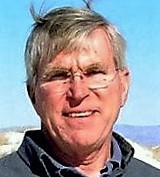
Climate change and endangered species
Jim Lindell, Bayfield
January 2016
For most of my career, I worked as a wildlife biologist or refuge manager. Among the most enjoyable aspects of my job was working in special habitats across the continent. Most assignments included working with endangered species -- the plants and animals that are at risk of extinction -- as well as a diversity of other species that enhance our quality of life.
Read full article
Jim Lindell, Bayfield
January 2016
For most of my career, I worked as a wildlife biologist or refuge manager. Among the most enjoyable aspects of my job was working in special habitats across the continent. Most assignments included working with endangered species -- the plants and animals that are at risk of extinction -- as well as a diversity of other species that enhance our quality of life.
Read full article
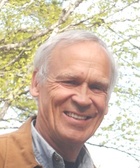
Cheers for Paris and the new economy
Bill Bussey, Bayfield
December 2015
For those of us concerned about climate change, there’s been a good deal to cheer about recently;
-In Paris, 195 countries - virtually all of the countries in the world - made a joint commitment to reducing their carbon emissions.
-228 cities and 44 state and regional governments from around the world have set goals for the reduction of greenhouse gas emissions.
-154 companies from across the American economy have pledged to support the Paris agreement and reduce their carbon emissions.
-Bill Gates and other highly successful entrepreneurs have formed a multi-billion dollar clean technology research and development fund.
-Congress has extended the tax credits for new solar and wind power facilities, which in recent years have added more new generating capacity than fossil-fuel facilities.
Read full article
Bill Bussey, Bayfield
December 2015
For those of us concerned about climate change, there’s been a good deal to cheer about recently;
-In Paris, 195 countries - virtually all of the countries in the world - made a joint commitment to reducing their carbon emissions.
-228 cities and 44 state and regional governments from around the world have set goals for the reduction of greenhouse gas emissions.
-154 companies from across the American economy have pledged to support the Paris agreement and reduce their carbon emissions.
-Bill Gates and other highly successful entrepreneurs have formed a multi-billion dollar clean technology research and development fund.
-Congress has extended the tax credits for new solar and wind power facilities, which in recent years have added more new generating capacity than fossil-fuel facilities.
Read full article

Changing the climate of land management
Paul I.V. Strong, Rhinelander
November 2015
Land managers, particularly those managing forests, always have the long term future in mind. Immediate benefits and values, such as, wood fiber, wildlife habitat, scenic beauty, and recreational opportunities, are realized in the context of sustainability. Sustainable forest management has been predicated on a reasonably certain future allowing managers to invest across decades with little concern for significant change. Today, forest land managers are facing an uncertain climate future which challenges established policies and practices.
Read full article
Paul I.V. Strong, Rhinelander
November 2015
Land managers, particularly those managing forests, always have the long term future in mind. Immediate benefits and values, such as, wood fiber, wildlife habitat, scenic beauty, and recreational opportunities, are realized in the context of sustainability. Sustainable forest management has been predicated on a reasonably certain future allowing managers to invest across decades with little concern for significant change. Today, forest land managers are facing an uncertain climate future which challenges established policies and practices.
Read full article
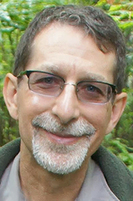
Climate change impacts to the Apostle Islands and the Chequamegon Bay region
Bob Krumenaker, Bayfield
October 2015
The brutal winter of 2013-14 is in the past and water levels are up in Lake Superior. Everything is returning to normal, right? We’d all prefer to be able to say yes… and that tomorrow’s normal will look much like yesterday’s. Despite the natural year-to-year variability, however, the debate among reputable climate scientists is about the magnitude and impact of climate change on the Great Lakes, not whether it’s happening.
Read full article
Bob Krumenaker, Bayfield
October 2015
The brutal winter of 2013-14 is in the past and water levels are up in Lake Superior. Everything is returning to normal, right? We’d all prefer to be able to say yes… and that tomorrow’s normal will look much like yesterday’s. Despite the natural year-to-year variability, however, the debate among reputable climate scientists is about the magnitude and impact of climate change on the Great Lakes, not whether it’s happening.
Read full article
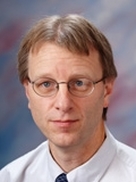
Climate talk
Clair Morud, Ashland
September 2015
In early July the weather was finally starting to feel like summer. The humidity was decreasing, the yard was finally dry, and the sunsets were even more amazing than usual. The only thing that felt odd was the strange haze that seemed to hang in the air. Meanwhile, the hospital and the clinics were seeing an unusual amount of respiratory complaints. Those with asthma or emphysema seemed to be havingbreathing problems at rates usually associated with a viral epidemic. It all tied together when I watched the news. Huge forest fires in the Canadian mountains were sending a plume of smoke our direction.
Read full article
Clair Morud, Ashland
September 2015
In early July the weather was finally starting to feel like summer. The humidity was decreasing, the yard was finally dry, and the sunsets were even more amazing than usual. The only thing that felt odd was the strange haze that seemed to hang in the air. Meanwhile, the hospital and the clinics were seeing an unusual amount of respiratory complaints. Those with asthma or emphysema seemed to be havingbreathing problems at rates usually associated with a viral epidemic. It all tied together when I watched the news. Huge forest fires in the Canadian mountains were sending a plume of smoke our direction.
Read full article
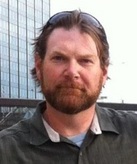
Climate talk
Tony Janisch, Ashland
August 2015
A few weeks ago, America celebrated the 70th anniversary of the end of World War II. While a glorious day for a war-torn world, it came with the devastation of two Japanese cities and launched humankind into the era of the atomic age. Citizens of Hiroshima and Nagasaki that survived the blasts were further exposed to radiation by drinking the water. Little was known at the time of the effects from atomic weaponry, and water remained contaminated for months.
Read full article
Tony Janisch, Ashland
August 2015
A few weeks ago, America celebrated the 70th anniversary of the end of World War II. While a glorious day for a war-torn world, it came with the devastation of two Japanese cities and launched humankind into the era of the atomic age. Citizens of Hiroshima and Nagasaki that survived the blasts were further exposed to radiation by drinking the water. Little was known at the time of the effects from atomic weaponry, and water remained contaminated for months.
Read full article
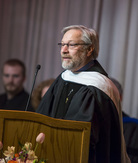
Climate talk
David Saetre, Mason
July 2015
Galileo’s conclusion that the earth revolves around the sun was condemned by the Inquisition almost 400 years ago. The Inquisition, representing the Roman Catholic Church and Pope Paul VI, saw Galileo’s scientific observations as a threat to the special interests and power of those institutions. The Inquisition dismissed Galileo’s science, declaring, “heliocentrism is foolish and absurd”. Those powerful special interests even resisted the publication of Galileo’s work for more than 100 years, and it wasn’t until 1992 that Pope John Paul II expressed regret for the Church’s condemnations and lifted the bans against Galileo.
Read full article
David Saetre, Mason
July 2015
Galileo’s conclusion that the earth revolves around the sun was condemned by the Inquisition almost 400 years ago. The Inquisition, representing the Roman Catholic Church and Pope Paul VI, saw Galileo’s scientific observations as a threat to the special interests and power of those institutions. The Inquisition dismissed Galileo’s science, declaring, “heliocentrism is foolish and absurd”. Those powerful special interests even resisted the publication of Galileo’s work for more than 100 years, and it wasn’t until 1992 that Pope John Paul II expressed regret for the Church’s condemnations and lifted the bans against Galileo.
Read full article
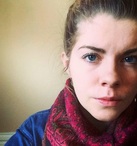
How we move from access to influence
Maria Langholz, St. Paul
June 2015
I’m not one to talk about the science of climate change. I assume that at this point everyone has decided to lean into the reality of climate science - or has chosen to disengage and hope that things get better on their own. But as a recap of what we know: climate change is happening now; it’s driven by our consumptive, wasteful lifestyles, and an addiction to fossil fuels; and, the fossil fuel industry has a both an incredible amount of power and an economic interest in our world holding on to our fossil fuel dependence.
Read full article
Maria Langholz, St. Paul
June 2015
I’m not one to talk about the science of climate change. I assume that at this point everyone has decided to lean into the reality of climate science - or has chosen to disengage and hope that things get better on their own. But as a recap of what we know: climate change is happening now; it’s driven by our consumptive, wasteful lifestyles, and an addiction to fossil fuels; and, the fossil fuel industry has a both an incredible amount of power and an economic interest in our world holding on to our fossil fuel dependence.
Read full article
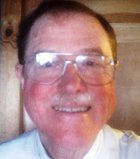
Reducing carbon emissions and dollar exports would improve the local economy
Bob Owen, Ino and Middleton
May 2015
Early this month, we had our annual reminder that atmospheric carbon dioxide levels climbed last year. Humanity continues burning fossil fuels and destroying forests. Climate warming continues as greenhouse gases like carbon dioxide and methane continue to accumulate in the atmosphere.
Read full article
Bob Owen, Ino and Middleton
May 2015
Early this month, we had our annual reminder that atmospheric carbon dioxide levels climbed last year. Humanity continues burning fossil fuels and destroying forests. Climate warming continues as greenhouse gases like carbon dioxide and methane continue to accumulate in the atmosphere.
Read full article
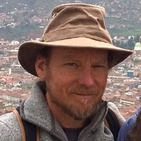
We can change climate change
Bill Bailey, Bayfield
April 2015
Climate change is a complex problem. Scientists analyze CO2 levels that trap heat in our atmosphere, predict trends in weather patterns, keep track of ice at the poles, monitor the sea level and CO2 concentrations and temperatures at various ocean depths, and if that isn’t complicated enough, there’s more; the human side of the equation. We already have Climate Change. What we need is Human Change.
Read full article
Bill Bailey, Bayfield
April 2015
Climate change is a complex problem. Scientists analyze CO2 levels that trap heat in our atmosphere, predict trends in weather patterns, keep track of ice at the poles, monitor the sea level and CO2 concentrations and temperatures at various ocean depths, and if that isn’t complicated enough, there’s more; the human side of the equation. We already have Climate Change. What we need is Human Change.
Read full article
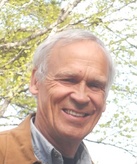
A Reagan approach to climate change
Bill Bussey, Bayfield
March 2015
George Shultz has had a remarkable career both in and out of government. With a doctorate in economics from MIT, he taught there and at the University of Chicago and served as a senior staff economist to President Eisenhower’s Council of Economic Advisors. He went on to serve as Secretary of Labor, Director of the Office of Management and Budget, and Treasury Secretary under President Nixon, and as Secretary of State for President Reagan. Though he is now 94, he’s still weighing in on important issues of our day, most recently in an op-ed in the Washington Post entitled “A Reagan Approach to Climate Change.”
Read full article
Bill Bussey, Bayfield
March 2015
George Shultz has had a remarkable career both in and out of government. With a doctorate in economics from MIT, he taught there and at the University of Chicago and served as a senior staff economist to President Eisenhower’s Council of Economic Advisors. He went on to serve as Secretary of Labor, Director of the Office of Management and Budget, and Treasury Secretary under President Nixon, and as Secretary of State for President Reagan. Though he is now 94, he’s still weighing in on important issues of our day, most recently in an op-ed in the Washington Post entitled “A Reagan Approach to Climate Change.”
Read full article
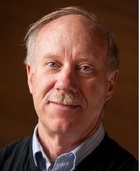
Climate talk
Mark Peterson
February 2015
I’m always a bit astounded and perplexed by those who quickly dismiss the issue of global climate change. While they eagerly desire the best available science on which to make serious and personal health decisions, such as having an organ transplant or undergoing life-threatening surgery for them or their loved ones, they quickly dismiss overwhelming scientific consensus that the planet is rapidly warming from largely human-caused burning of fossil fuels. I wonder what scientists they are listening to?
Read full article
Mark Peterson
February 2015
I’m always a bit astounded and perplexed by those who quickly dismiss the issue of global climate change. While they eagerly desire the best available science on which to make serious and personal health decisions, such as having an organ transplant or undergoing life-threatening surgery for them or their loved ones, they quickly dismiss overwhelming scientific consensus that the planet is rapidly warming from largely human-caused burning of fossil fuels. I wonder what scientists they are listening to?
Read full article
